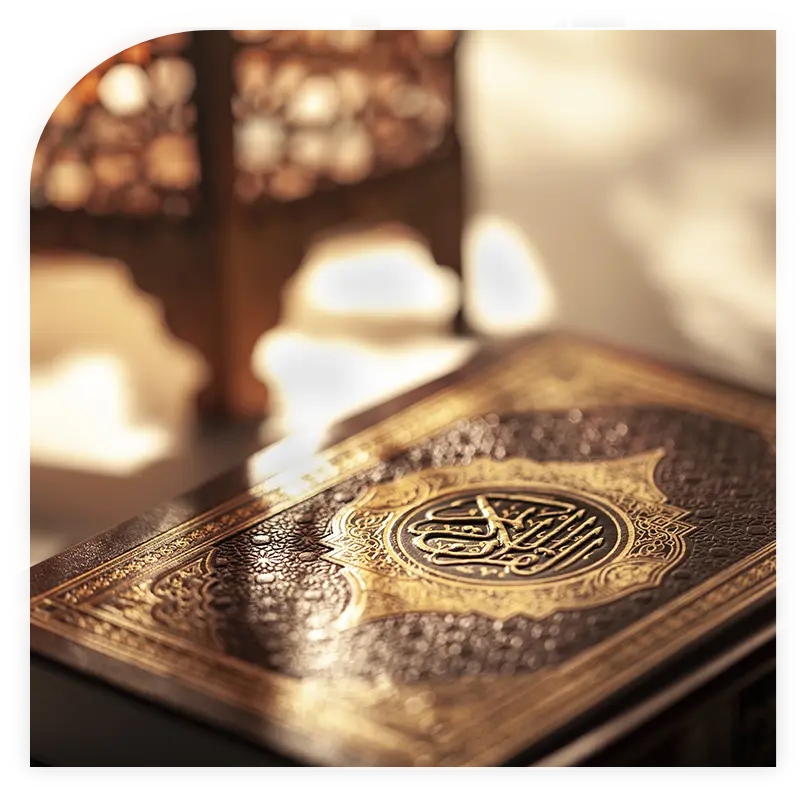Divorce is a prevalent issue in many Muslim societies. It’s an unfortunate reality that impacts not only the divorcing parties but also their children and the broader community. When faced with this challenging stage of marriage, it’s crucial to understand the available options. While many are aware of how a man can initiate divorce, there’s often a lingering question: “Can a woman initiate a divorce in Islam?” The answer is “Yes!”
However, understanding a Muslim wife’s rights and obligations during a divorce is essential for navigating this difficult journey with clarity and confidence. Insights from a Muslim Life Coach can provide the support needed to comprehend the key aspects of an Islamic divorce initiated by a wife.
The Last Resort
In Islam, divorce is considered a last resort. Allah does not like divorce, as it disrupts families and the social fabric. The Qur’an advises believers to make every effort to resolve marital issues before considering divorce. In Surah An-Nisa (4:35), it is stated: “And if you fear dissension between the two, send an arbitrator from his people and an arbitrator from her people. If they both desire reconciliation, Allah will cause it between them. Indeed, Allah is ever Knowing and Acquainted [with all things].”
(وَإِنْ خِفْتُمْ شِقَاقَ بَيْنِهِمَا فَابْعَثُوا حَكَمًا مِّنْ أَهْلِهِ وَحَكَمًا مِّنْ أَهْلِهَا إِن يُرِيدَا إِصْلَاحًا يُوَفِّقِ اللَّهُ بَيْنَهُمَا ۗ إِنَّ اللَّهَ كَانَ عَلِيمًا خَبِيرًا).
This verse emphasizes the importance of seeking mediation and reconciliation.
However, there are conditions under which a woman can ask for a divorce. If the husband fails to fulfill his marital obligations, engages in abusive behavior, or if there is irreconcilable discord, a woman has the right to seek a divorce. Surah Al-Baqarah (2:229) states: “And it is not lawful for you to take anything of what you have given them unless both fear that they will not be able to keep [within] the limits of Allah.”
(وَلَا يَحِلُّ لَكُمْ أَن تَأْخُذُوا مِمَّا آتَيْتُمُوهُنَّ شَيْئًا إِلَّا أَنْ يَخَافَا أَلَّا يُقِيمَا حُدُودَ اللَّهِ)
This underscores that while divorce is discouraged, it is permissible under certain circumstances to protect the well-being of the individuals involved.
Understanding a Woman’s Right to Divorce in Islam
Divorce in Islam, known as “Talaq,” is initiated by the husband. When initiated by the wife, it is often called “Khula.” Khula is a process wherein the wife seeks a divorce and offers compensation to the husband for the dissolution of the marriage. This can include the return of the Mahr (dowry) given at the time of marriage.
The Process of Khula
- Initiation: The wife expresses her desire to end the marriage, citing valid reasons for the separation.
- Negotiation: The couple, ideally with the involvement of family or community elders, negotiates the terms, including compensation.
- Approval: The husband’s consent is required for Khula. However, if he refuses without just cause, the wife can seek intervention from an Islamic court.
- Formalization: Once terms are agreed upon, the divorce is formalized, and the marriage is dissolved.

Rights of the Wife in an Islamic Divorce
Islamic law grants several rights to the wife seeking divorce:
Right to Fair Treatment:
A wife has the right to be treated fairly and justly throughout the divorce process. Any form of coercion or undue pressure is strictly prohibited.
Right to Financial Support:
Even in the case of Khula, the wife retains certain financial rights. These include:
- Mahr: The wife must return the Mahr if it was specified as part of the divorce agreement.
- Maintenance (Nafaqah): The wife is entitled to maintenance during the waiting period (‘Iddah).
Right to Custody of Children:
Islamic law prioritizes the welfare of children. Typically, young children remain with their mothers unless it can be proven that this is not in their best interests.
Obligations of the Wife in Islamic Divorce
Alongside her rights, a wife seeking divorce has specific obligations:
Observing the ‘Iddah:
‘Iddah is a waiting period that the wife must observe after the divorce is pronounced. This period, usually three menstrual cycles, ensures that there is no pregnancy, thereby clarifying lineage and allowing time for reconciliation if possible.
Returning the Mahr:
In Khula, the wife is required to return the Mahr to the husband unless otherwise agreed.
Upholding Children’s Rights:
If the wife retains custody, she must ensure the children’s welfare and upbringing according to Islamic principles.
Role of a Muslim Life Coach
Navigating a divorce is challenging, and having the support of a Muslim Life Coach can be invaluable. A Muslim Life Coach provides:
Emotional Support:
Divorce can be emotionally taxing. A life coach offers empathy, understanding, and guidance to help the wife cope with the emotional upheaval.
Spiritual Guidance:
A life coach helps the wife maintain her faith and spirituality during this difficult time, encouraging her to find solace in prayer and trust in Allah’s plan.
Practical Advice:
A life coach provides practical advice on everything from legal aspects to personal well-being to ensure the wife makes informed decisions.
Common Misconceptions About Divorce in Islam
There are several misconceptions about divorce in Islam that need to be addressed:
Divorce is Always the Man’s Right:
While men have the right to pronounce Talaq, women also have the right to seek divorce through Khula. Both parties have defined rights and responsibilities.
Khula is Difficult to Obtain:
While Khula requires the husband’s consent, it is a legitimate and recognized form of divorce. Islamic courts can intervene if the husband refuses without valid reasons.
Is Khula the same as Talaq?
No, Talaq is initiated by the husband, while Khula is initiated by the wife and involves compensation to the husband.
Conclusion
A wife initiating an Islamic divorce is a process defined by rights, obligations, and compassion. Understanding these aspects ensures that the wife can navigate the process with dignity and faith. Seeking guidance from a Muslim Life Coach can provide the necessary support to manage the emotional and practical challenges of divorce. By adhering to Islamic principles, both parties can find a resolution that upholds justice and compassion.
FAQs
Can a wife initiate divorce in Islam?
Yes, a wife can initiate divorce through Khula, where she requests a separation and offers compensation to the husband.
What is the ‘Iddah period?
‘Iddah is a waiting period after divorce, typically lasting three menstrual cycles, to ensure there is no pregnancy and to allow for possible reconciliation.
Does a wife have to return the Mahr in Khula?
Yes, in most cases, the wife is required to return the Mahr to the husband as part of the Khula process.
Can a wife get custody of her children after divorce?
Yes, Islamic law often grants custody to the mother, especially for young children, unless it is proven not to be in their best interest.
What support can a Muslim Life Coach provide during divorce?
A Muslim Life Coach offers emotional, spiritual, and practical support, helping the wife navigate the complexities of divorce with faith and resilience.


